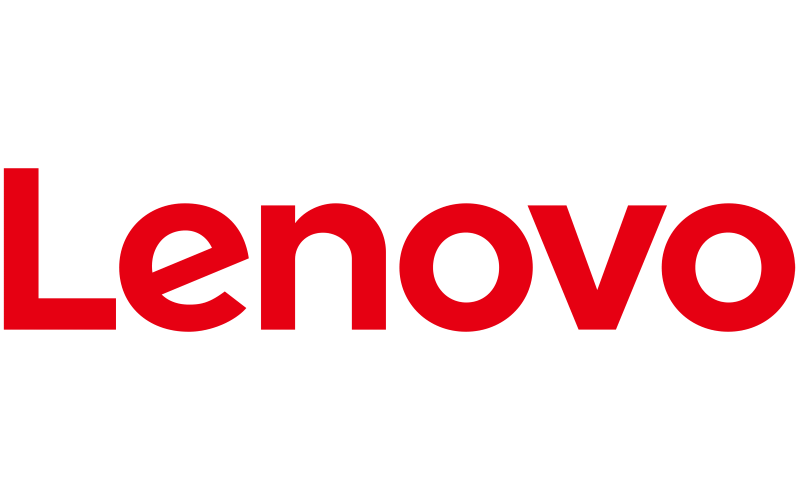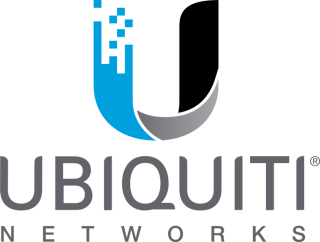In the rapidly evolving landscape of the digital age, harnessing the power of information has never been more critical. Knowledge management tools stand at the forefront of this transformation, providing businesses and teams the leverage they need to efficiently capture, store, and share vital knowledge. Whether it’s streamlining communication, enhancing collaboration, or driving innovation, these tools are indispensable in maximizing an organization’s intellectual capital. As we approach 2024, understanding the capabilities and advantages of these tools can be a game-changer for your operational efficiency and competitive edge.
This article delves into the essence of knowledge management software, illustrating why these tools are pivotal for organizational success. We will explore the various types of knowledge management tools—from knowledge bases like Confluence and Guru to project management integrations such as ClickUp—highlighting their unique features and benefits. Furthermore, you will learn how to choose the right knowledge management tool tailored to your needs, ensuring you reap the maximum benefits. With a curated list of the best knowledge management tools for 2024, you will be well-equipped to make an informed decision that aligns with your strategic goals, paving the way for enhanced productivity and innovation.
What is Knowledge Management Software?
Definition
Knowledge Management Software (KMS) encompasses a set of tools, procedures, and technologies designed to manage an organization’s information assets. It formalizes the management and use of intellectual assets, promoting an integrated approach to creating, capturing, organizing, accessing, and using both tacit and explicit knowledge.
Uses and Benefits
Knowledge management tools are pivotal in enhancing operational efficiency and fostering innovation within an organization. They enable the sharing of ideas, streamline collaboration, and provide access to up-to-date information, which is crucial for making informed decisions and driving business growth. For instance, a KMS can include:
- Customer Relationship Management (CRM) Systems: These systems store customer data and transaction histories, helping teams understand and respond to customer needs effectively.
- Knowledge Base: This tool offers a searchable index of content related to various business aspects, facilitating quick access to needed information.
- Learning Management Systems (LMS): LMS technologies provide on-demand training and skills development, optimizing operations and enhancing employee performance.
Moreover, knowledge management software supports continuous learning and innovation, reduces information leakage, and improves customer experiences by ensuring that valuable knowledge is not lost but rather effectively shared across the organization.
Why are Knowledge Management Tools Important?
Knowledge management tools are crucial for any organization aiming to maintain a competitive edge and streamline internal processes. These tools not only enhance the efficiency and productivity of an organization but also play a pivotal role in improving profitability by organizing critical company information into a single, accessible source of truth.
Key Benefits
- Boosts Efficiency and Profitability: By facilitating the organization of crucial data, knowledge management tools help improve your operational efficiency, directly impacting profitability.
- Enhances Collaboration: These tools enable seamless collaboration across teams, regardless of their physical locations, ensuring that everyone is on the same page and can work effectively on joint projects.
- Centralizes Information: Acting as a single source of truth, they organize all critical company data in one place, making it easier for you to find and use the information you need.
- Promotes Continuous Learning: By providing easy access to knowledge and educational resources, these tools encourage ongoing employee development and knowledge enhancement.
Business Impact
The implementation of knowledge management tools significantly impacts various facets of business operations. Internally, they facilitate the sharing of expertise and important information across departments, enhancing decision-making and streamlining processes. This internal efficiency translates into cost savings and improved profitability. Externally, they empower customers with self-service options, improving customer satisfaction and loyalty by providing them with the tools to solve problems independently.
Moreover, these tools are instrumental in retaining organizational knowledge, which can be lost when employees leave. They ensure that valuable insights and data remain within the company and are accessible to new and existing employees, fostering a culture of learning and innovation.
In summary, the strategic implementation of knowledge management tools is not just about maintaining information but transforming how an organization operates, collaborates, and grows in an increasingly digital world.
Types of Knowledge Management Tools
Knowledge Bases
Knowledge bases serve as searchable information repositories that store your company’s critical data for internal or external access. These are categorized into two types: machine-readable, which is primarily for AI systems, and human-readable, which contains documents accessible to personnel. Human-readable databases are more interactive, though they may require more time for information retrieval.
Learning Management Systems (LMS)
LMS platforms are instrumental in building a robust foundation for knowledge management within organizations. They allow the creation and management of customized training programs, including courses, quizzes, and educational materials, which can be distributed to employees, students, or partners to foster learning and development.
Knowledge-Centered Service (KCS)
KCS supports customer service and support teams by facilitating access to and utilization of knowledge, thereby delivering greater value. It emphasizes the collective responsibility of maintaining the knowledge base, ensuring that solutions to problems are captured and accessible to all within the organization.
AI Knowledge Management
AI-driven tools in knowledge management enhance decision-making by enabling the selection, analysis, and classification of text, automated reasoning, and visual data representation. These tools are adept at processing large volumes of data, including handling big data through innovative storage solutions like blockchain.
Customer Relationship Management (CRM)
CRM systems are designed to manage all aspects of customer relations across various stages of the customer lifecycle. From initial contact to ongoing interactions, these systems track and store valuable customer data, enabling personalized customer experiences and streamlined sales processes.
Content Management
Content management systems facilitate the creation, management, and distribution of digital content across your organization’s platforms. These systems support collaborative work, provide templates for content creation, allow easy metadata tagging, and integrate seamlessly with document management systems to enhance functionality and user engagement.
How to Choose the Right Knowledge Management Tool
Assessing Needs
To select the ideal knowledge management tool for your organization, start by clearly defining what you need from the system. Consider the type of information you’ll manage, the volume of data, and how scalable the solution should be to accommodate future growth. It’s essential to understand the level of collaboration required and whether the tool will need to integrate with other systems in your tech ecosystem, such as CRMs or ERP systems. This initial assessment will guide you in filtering out solutions that don’t align with your organizational requirements.
Budget Considerations
Your budget plays a crucial role in the decision-making process. Knowledge management tools can vary significantly in cost, influenced by their features, scalability, and the support they offer. It’s important to think about not only the upfront costs but also the long-term expenses associated with the tool, such as maintenance and upgrades. Evaluate the potential return on investment (ROI) by considering how the tool will save time and resources, improve efficiencies, and potentially increase profitability.
Evaluating Features
When examining potential knowledge management tools, focus on the features that are most critical to your organization’s needs. Key functionalities might include search capabilities, ease of use, and the ability to integrate seamlessly with existing systems. Other important features to consider are analytics and reporting capabilities, which help measure the tool’s impact and effectiveness. Additionally, assess the tool’s security features to ensure it complies with your industry’s regulations and protects your data adequately.
The Best Knowledge Management Tools for 2024
Guru
Guru stands out as a dynamic knowledge management platform that revolutionizes knowledge sharing and capturing. It is especially beneficial for customer service teams, sales teams, and support professionals. Guru transforms knowledge into bite-sized, verified cards that are easily searchable and accessible. Its real-time syncing capabilities integrate seamlessly with your existing workflows and platforms. Additionally, AI-powered suggestions and reminders help keep your knowledge current and relevant, enhancing productivity and improving response times.
Confluence
Confluence, part of the Atlassian suite, is robust wiki software that facilitates seamless knowledge sharing across teams. It is suitable for a wide range of businesses, particularly valuable for cross-functional teams and project managers. Confluence allows you to create, edit, and organize content in real-time. Its flexible and customizable spaces enable you to create dedicated areas for specific projects or knowledge domains, supported by advanced search functionality and robust customizability of layouts, templates, and themes.
Notion
Notion is a versatile all-in-one workspace where teams can create and organize internal knowledge bases, project wikis, and collaborative documents. It is suitable for project managers, content creators, and remote teams. Notion’s flexible and customizable workspace allows you to design your own layouts, templates, and databases to suit specific workflows and preferences. Teams can collaborate in real-time, leave comments, track changes, and easily embed various media types, enhancing team productivity.
ClickUp
ClickUp is more than just a project management solution; it is an all-in-one tool that helps teams create comprehensive wikis and internal documentation. ClickUp’s knowledge management system features a universal search function, nested pages, and task management capabilities, which allow you to assign or tag others into specific documents. Its document management features link Docs and tasks together, providing a centralized location for company knowledge, which is accessible with a robust search function.
Document360
Document360 excels in content creation and management, offering intuitive tools for creating and organizing articles, FAQs, and project documentation. It is suitable for businesses handling large volumes of data and information, including customer support teams and product managers. Key features include standout search functionality via advanced search filters, keyword searches, and AI-powered recommendations, all within an intuitive and user-friendly interface.
Bloomfire
Bloomfire is a knowledge base software designed to effectively capture, organize, and share information within teams. It features a user-friendly interface that allows teams to create and categorize articles, videos, and other content types. Bloomfire’s powerful search functionality enables quick and efficient information retrieval. Social learning features also provide a new way to engage with your team, share insights, ask questions, provide feedback, and learn from each other.
Conclusion
As you delve into the world of knowledge management tools, remember that the right choice can significantly enhance your organization’s efficiency, collaboration, and continuous learning capabilities. Each tool offers unique benefits, but they all aim to streamline your operations and secure a single source of truth for critical information.
To make an informed decision, consider the specific needs of your organization, including size, budget, and existing technology stack. It’s essential to evaluate multiple options, read user reviews, and leverage free trials to ensure the tool fits well with your workflows and truly addresses your requirements.
Moreover, the integration of AI in knowledge management is transforming traditional systems into dynamic, intelligent platforms capable of anticipating needs and enhancing decision-making. This synergy not only boosts efficiency but also fosters a culture of innovation and ethical knowledge management.
As you move forward, focus on tools that not only meet your current needs but also offer scalability and adaptability for future challenges. Remember, the goal is to choose a knowledge management tool that will drive collaboration, innovation, and growth well into the future.
FAQs
- What does the future hold for knowledge management systems?
The future of knowledge management systems looks promising, especially with recent advancements in AI technologies. These advancements are set to enhance the role of knowledge management, making information more accessible and actionable than ever before. - What are the main components of knowledge management?
Knowledge management primarily consists of four key components: people, process, content/IT, and strategy. These elements are crucial across all industries and organizational sizes, as they involve leadership, sponsorship, and support for effective knowledge sharing. - What constitutes a knowledge management tool?
Knowledge management tools are designed to help organizations capture, store, and apply knowledge to add maximum value to the business. These tools vary in their focus on different types of knowledge and are tailored to enhance efficiency in various business areas. - What are the three main types of knowledge management systems?
The three primary types of knowledge management systems include knowledge work systems, intelligent techniques, and enterprise-wide knowledge management systems. Each type is geared towards facilitating the sharing and management of corporate information in distinct ways.










